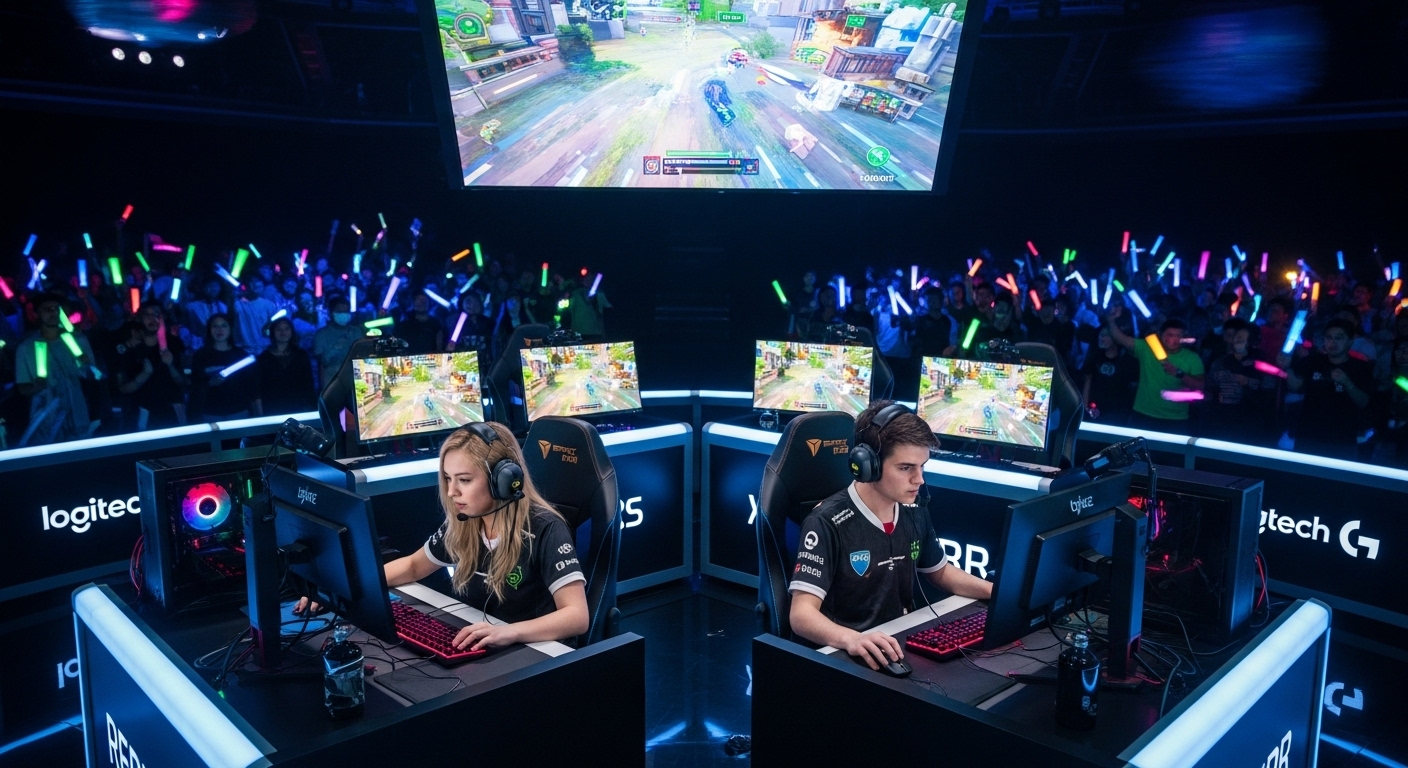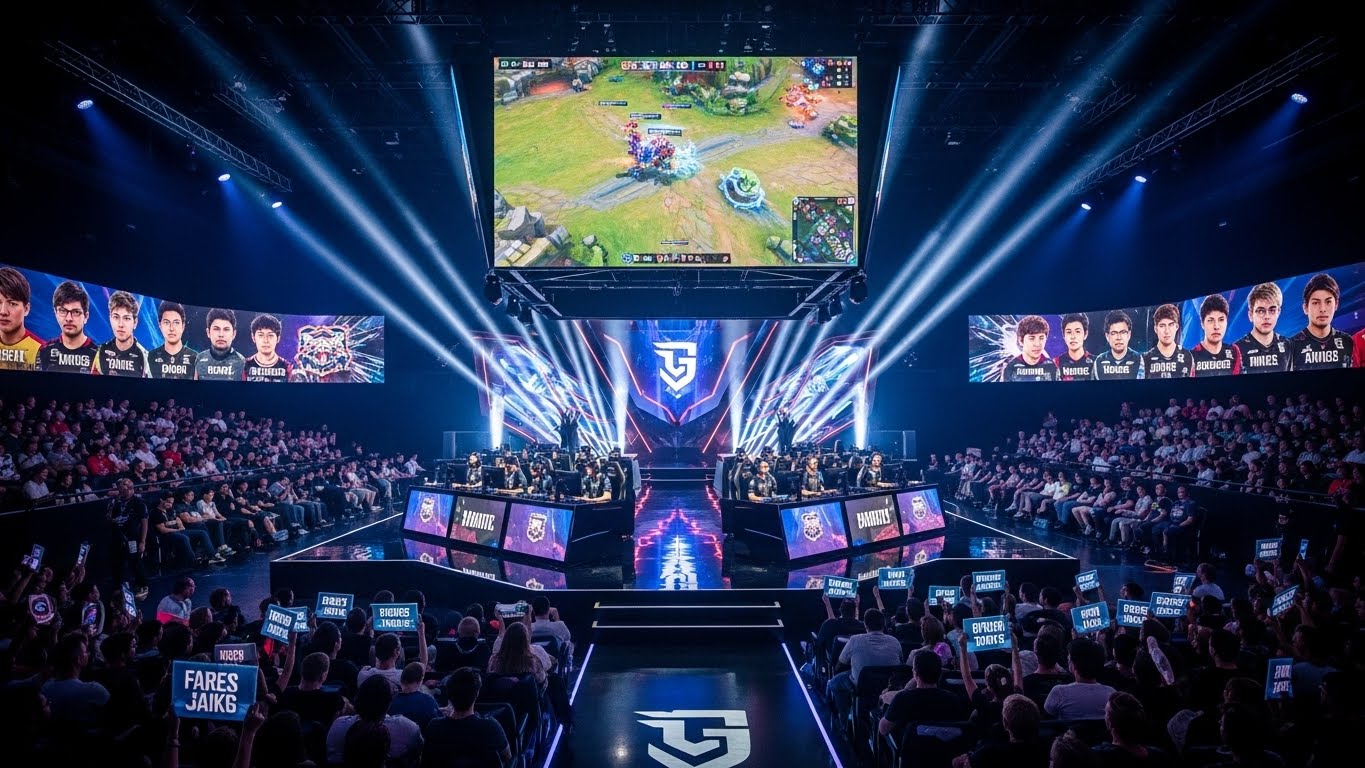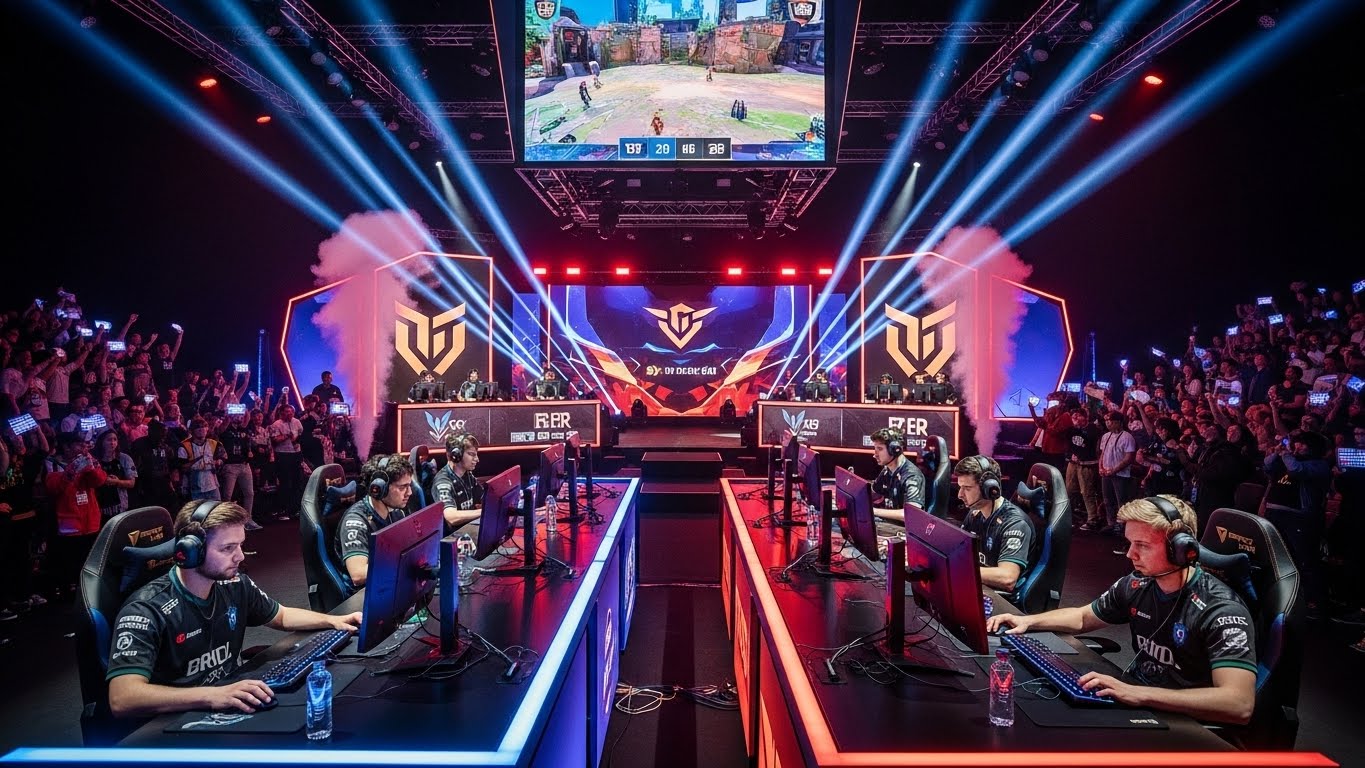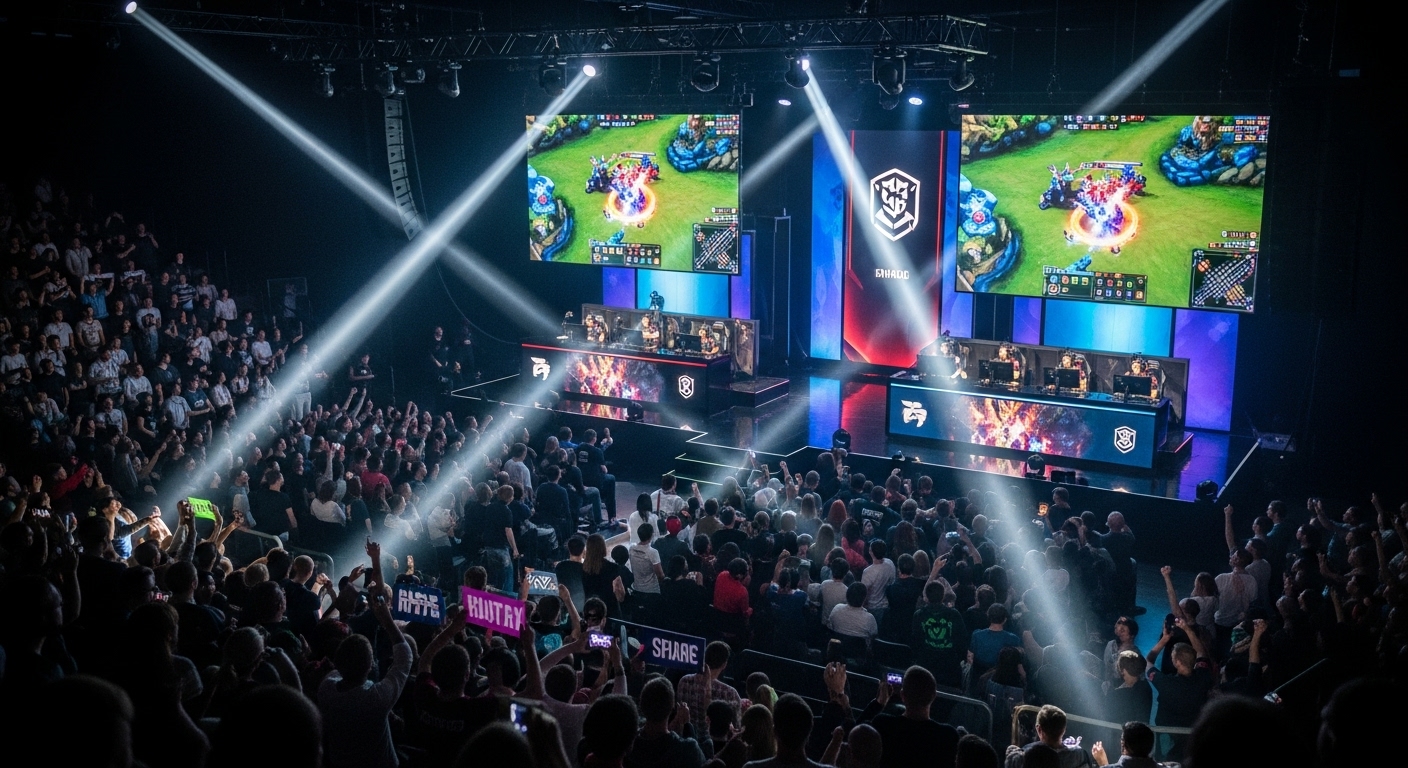In the world of esports, becoming a champion takes far more than raw talent or lightning-fast reflexes. The best players and teams reach greatness through consistent habits that sharpen their skills, strengthen their mindset, and sustain their focus through the highs and lows of competition. Just like traditional athletes, esports pros must balance physical endurance, mental resilience, and teamwork to stay at the top.
Champions aren’t made overnight—they’re built through discipline, routine, and the small decisions repeated every single day. In this blog, we’ll explore the best habits that make champions in esports, diving into what separates elite performers from the rest and how these habits contribute to long-term success.
The Foundation of Championship Mindset
At the heart of every champion is a mindset built on discipline and purpose. Great players don’t just play for fame or prize money—they play to improve, to compete, and to prove something to themselves. This mental approach becomes their foundation.
A champion’s mindset is defined by persistence, humility, and hunger. They see every win as motivation and every loss as a lesson. Instead of blaming teammates or luck, they analyze mistakes and turn setbacks into stepping stones.
This ability to reflect honestly and improve consistently is one of the strongest habits any player can develop. Champions know that greatness isn’t a destination—it’s a continuous process of learning, adapting, and growing.
Consistent Practice and Purposeful Training
Every great esports player lives by one rule: practice makes improvement. But champions don’t just grind endlessly—they practice with intention.
Casual players may spend hours in ranked games without progress because they repeat the same mistakes. Pros, on the other hand, focus on specific goals in each session. They review replays, study their weaknesses, and break down their gameplay into targeted improvements.
For example, a League of Legends mid-laner might spend hours mastering wave control, while a Counter-Strike 2 player refines crosshair placement and spray control. A Valorant player might drill communication timing with their team. This focused approach ensures that every minute of training contributes to long-term mastery.
Consistency is also key. The best players maintain structured routines, practicing daily and managing their time efficiently to balance training, rest, and analysis. Over time, this discipline builds muscle memory and game sense that separates champions from the rest.
Review and Self-Analysis
One of the most defining habits of champions is the willingness to self-analyze. Great players never assume they’ve reached perfection—they constantly seek feedback and look for flaws.
Replay analysis is a crucial part of every pro’s training. By reviewing their gameplay, players can identify decision-making errors, positional mistakes, or moments of hesitation. They also study opponents’ tendencies to prepare counter-strategies for future matches.
Teams like T1, G2 Esports, and Team Liquid have built entire systems around post-match reviews. Analysts and coaches work with players to break down every round, discussing what worked, what didn’t, and how to improve.
This continuous cycle of analysis and adaptation ensures that champions never stagnate—they evolve with the meta, learn from defeats, and refine their performance for the next challenge.
Mental Resilience and Emotional Control
Mental strength is one of the most underrated habits in esports. The pressure of competition, online criticism, and unpredictable results can break even the most skilled players. Champions develop emotional control to stay calm, focused, and confident under pressure.
They learn to manage tilt—the frustration that arises after mistakes or losses. Instead of letting emotions dictate their gameplay, they pause, breathe, and reset their focus.
Many pros use mindfulness or meditation techniques to maintain mental balance. Visualization—imagining success and ideal performance—helps them approach matches with confidence. Others rely on breathing exercises or quiet moments before games to clear their minds.
Mental resilience also means not giving up after defeat. True champions see every loss as feedback, not failure. They understand that consistency comes from persistence through adversity, not avoidance of it.
Physical Fitness and Health
Esports might not involve running across fields, but physical health plays a massive role in performance. Champions treat their bodies like precision instruments—they know fatigue, poor diet, or lack of exercise can reduce reaction times and concentration.
Many professional players include regular physical workouts in their routines to maintain stamina, posture, and circulation. Exercises like yoga, stretching, or light cardio help prevent repetitive strain injuries, especially in the wrists and back.
Nutrition also matters. Champions prioritize balanced diets to maintain steady energy levels during long practice hours. Hydration and sleep are treated as part of their training, not afterthoughts.
A healthy body supports a sharp mind—and in esports, that combination often determines who wins the final round.
Communication and Team Synergy
In team-based esports, communication is the backbone of victory. No player, no matter how skilled, can win alone. Champions master the habit of clear, effective communication under pressure.
This means calling out enemy positions, relaying strategic adjustments, and supporting teammates emotionally during tough matches. Teams like NAVI, Fnatic, and LOUD are famous for their synergy—each player trusts the other to make the right call at the right time.
Good communication also involves active listening. Champions respect their teammates’ perspectives, creating an environment where feedback is welcomed, not feared. Over time, this mutual trust becomes the core of a winning team culture.
Adaptability and Continuous Learning
The esports landscape changes constantly—new patches, evolving metas, and shifting strategies can make yesterday’s playstyle obsolete. Champions embrace change instead of resisting it.
They study patch notes, watch scrims from rival teams, and experiment with new tactics to stay ahead of the curve. Flexibility allows them to thrive even when conditions shift unexpectedly.
For example, a Dota 2 player who can switch roles or heroes seamlessly becomes a valuable asset in drafts. A Valorant player who quickly learns new agents or maps gives their team a tactical edge. Champions adapt faster than others, turning uncertainty into opportunity.
Humility and Respect
One of the lesser-seen but most powerful habits among champions is humility. True professionals know that no matter how many trophies they win, there’s always room to grow.
Humility keeps champions grounded. It helps them remain open to feedback from coaches, analysts, and even fans. It also fosters sportsmanship—respecting opponents, acknowledging great plays, and maintaining professionalism on and off the stage.
Players like Faker in League of Legends and ZywOo in Counter-Strike 2 are admired not just for their skill but for their humility. They inspire others through their quiet confidence and consistent dedication, proving that true greatness doesn’t require arrogance.
Time Management and Balance
Champions understand that burnout is real. Long hours of scrimming or grinding ranked games can lead to fatigue and mental exhaustion. The best players develop habits of balance—knowing when to push hard and when to rest.
They schedule time for relaxation, socializing, and hobbies outside of gaming. This balance keeps their minds fresh and creativity alive.
Time management also extends to efficient practice schedules. Instead of aimless grinding, champions structure their training sessions to include warm-ups, drills, team coordination, and review time. This disciplined approach ensures that every hour of effort produces maximum improvement.
Focus and Presence in the Moment
One of the greatest habits of champions is their ability to stay present. During matches, they are fully immersed in the game—aware of every sound, movement, and opportunity.
They don’t dwell on past mistakes or future worries. Instead, they stay anchored in the now, adapting moment by moment. This state of “flow” allows them to perform at their peak.
Achieving this focus requires preparation. Mental conditioning, mindfulness, and confidence-building routines help pros enter the zone where they can react instinctively and decisively.
Goal Setting and Long-Term Vision
Champions don’t rely on motivation—they rely on goals. Every top-tier player sets both short-term and long-term objectives to stay driven.
Short-term goals might include improving reaction speed or mastering a specific hero, while long-term goals could involve winning a major tournament or building a lasting legacy. These goals provide structure and purpose, giving every training session meaning.
By measuring progress regularly, champions maintain momentum even during challenging times. Goals turn ambition into action and ensure that improvement is never left to chance.
Building Positive Habits Off the Stage
What champions do outside of competition is just as important as what they do inside it. Many pros cultivate positive lifestyle habits that support performance, such as maintaining organized living spaces, engaging in hobbies, or spending time with supportive communities.
These off-stage routines help players unwind, reduce stress, and maintain perspective. Balance between competition and personal life keeps motivation alive and prevents burnout, ensuring longevity in their careers.
The Role of Coaches and Support Systems
Behind every champion is a strong support system. Coaches, analysts, and teammates all play vital roles in shaping success. Champions build the habit of collaboration—leaning on others for feedback, guidance, and accountability.
Good players rely on instinct; great players rely on systems. They respect coaching authority, engage in productive discussions, and trust the process that leads to improvement. This collaborative mindset creates environments where talent thrives and teams grow stronger together.
Consistency: The Ultimate Habit
If there’s one word that defines champions, it’s consistency. Champions don’t rely on occasional brilliance—they show up, every day, with purpose and dedication.
They practice when others rest, review when others celebrate, and stay humble when others boast. Their discipline becomes second nature, and their small daily habits compound into monumental success over time.
Consistency doesn’t mean never failing—it means always returning stronger after failure. That relentless commitment is what transforms skilled players into legends.
Conclusion
The best champions in esports aren’t defined only by their skill, but by their habits—the quiet, disciplined routines that shape their journey. They practice with purpose, analyze with honesty, and perform with focus. They stay humble, balanced, and hungry for growth.
Whether it’s maintaining mental resilience, fostering teamwork, or staying physically and emotionally healthy, these habits are the invisible foundation of every great career.
Champions aren’t born—they are built through persistence, discipline, and a daily choice to improve. In esports, as in life, success belongs to those who cultivate habits of excellence and never stop striving to be better than they were yesterday.



